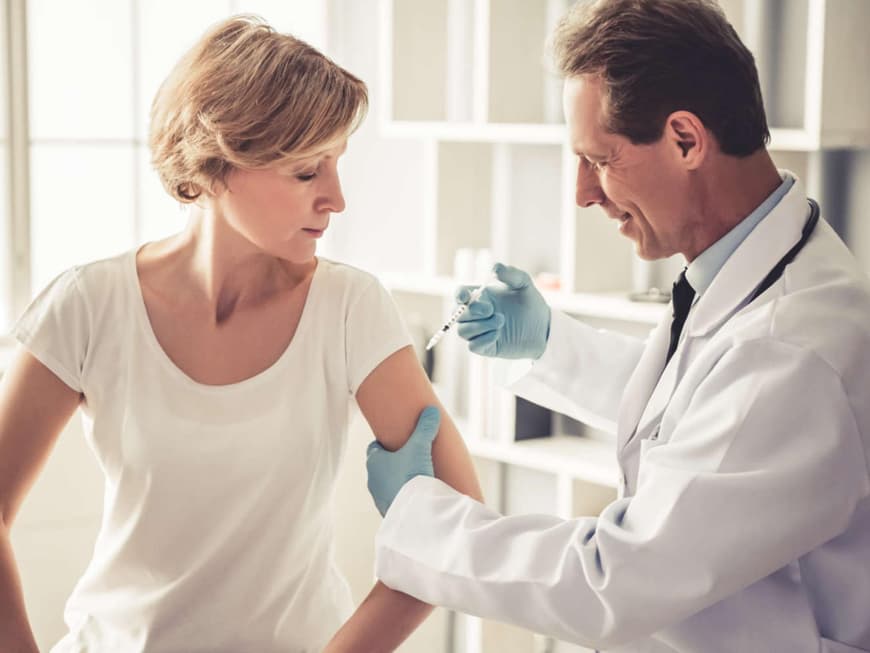
Vaccination reactions are completely normal - and not everyone shows any afterwards, as they occur individually! The most common problems are cold symptoms, a sore arm or occasionally bruising.
9 signs that you have already had corona
Hives and urticaria: Skin rash after corona vaccination
In a few rare cases, skin rashes have been observed after a corona vaccination. These include hives, for example. The rash can form locally around the injection site or, in special cases, cover the entire body. Hives cause severe itching and the skin may also burn. Reddish wheals form, which resemble touching a stinging nettle and feel as described above.
The Robert Koch Institute provides information on the possibility of skin symptoms after vaccination. This also depends on the vaccine:
- Comirnaty from Biontech (up to 1%): Vaccinated individuals showed hypersensitivity reactions, including rash
- Spikevax from Moderna (up to 10 %): Vaccinated people showed general rash as well as rash, redness or hives at the vaccination site
- Vaxzevria from AstraZeneca (up to and 1%) Vaccinated people showed symptoms such as itching and a rash
- Janssen from Johnson & Johnson (up to 0.1%) Vaccinated people showed hypersensitivity reactions and hives
More information in the information sheet on the mRNA vaccines >>
The information sheet on the vector vaccines >>
Itching: What to do about the rash?
Like most vaccination reactions, the skin rash will subside after one to two days. During this time, you can do the following to alleviate the symptoms:
- Cold compresses
- Vinegar compresses
- Peppermint and basil tea compresses (also drink as tea)
- Ointments that relieve itching
What is also important:
- Do not scratch! It may be difficult, but scratching not only makes the itching worse, it can also inflame the skin. This significantly delays the healing process. If you scratch unknowingly during the night, put on gloves so that you do not injure the skin further.
- Wear loose clothing - the less skin contact there is, the better.
- Avoid sunbathing
- Avoid perfumes
If the symptoms do not subside after the time described, you should consult a doctor. Antihistamines, which block the docking sites of the messenger substance histamine in the body and alleviate the allergic reaction, usually help. Depending on the course of the reaction, the doctor may also prescribe cortisone ointments for quick and lasting relief.
